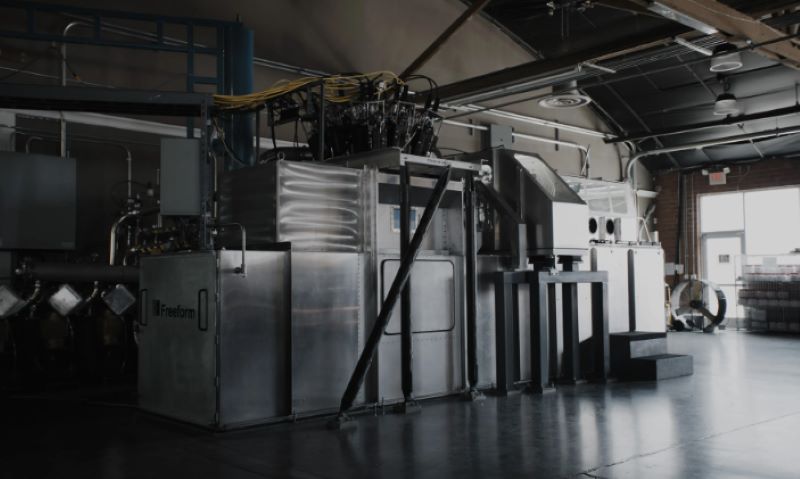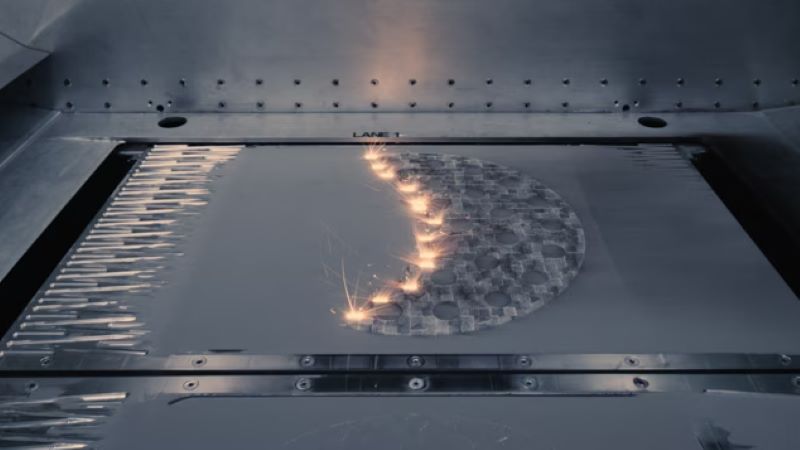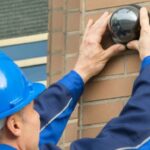There is no doubt that 2024 will be a tumultuous year for the 3D printing industry as a whole. We even believe that the industry is falling into an economic bubble unique to 3D printing, with delistings, closures, and mergers and acquisitions becoming the norm for some of the leading companies abroad. In such an environment, how to regain confidence has become a difficult subject, because it seems difficult to see new hope from the old companies.
However, a new force is quietly rising – they represent a new generation of 3D printing enterprises, like the dawn, is lighting up the future of the industry.
Freeform Future Corp. is a 3D printing startup focused on developing 3D printing for the production of metal parts, founded by a former SpaceX engineer. The company recently announced the successful completion of a $14 million round of financing, with Nvidia’s NVentures Fund and Boeing’s AE Ventures participating in the round.
To date, Freeform has raised a total of $59 million (equivalent to more than 400 million yuan), which will be used to further expand the application of its metal 3D printing technology and drive large-scale commercial operations of on-demand manufacturing services.
The world’s first autonomous 3D printing factory

Founded in 2019 and headquartered in Hawthorne, California, Freeform is dedicated to building automated 3D printing factories that provide on-demand production solutions for multiple industries through a ‘manufacturing-as-a-service’ model, according to the Resource Library. Freeform’s business model focuses on providing contract manufacturing services through an in-house factory, where the machines are not sold and the customer does not have to learn how to operate the 3D printing equipment or incur the upfront costs of hardware purchases.
The company has now attracted customers in the aerospace, automotive, industrial and energy sectors, for whom it can produce thousands of parts every day. These include Ursa Major: an American aerospace company that produces rocket engines.Ursa Major uses Freeform’s printing services to manufacture key components, and through the flexibility of 3D printing they are able to make quick adjustments to their designs without affecting production costs or lead times. This has helped them to manufacture high-quality parts in a matter of days, rather than the weeks it used to take.
As for Embark Trucks, a company dedicated to developing self-driving truck technology, Embark relies on Freeform to quickly transition from prototype to mass production. With Freeform’s printing technology, they are able to accelerate the deployment and speed to market of their technology by increasing reliability in the supply chain while allowing the flexibility to modify designs without delaying delivery.
AI-enabled to unlock the potential of large-scale metal 3D printing

Freeform’s core technology relies on advanced sensing, real-time control and data-driven learning systems that bring the scalability of software to physical production. This new type of technology allows it to produce digitally verified, high-quality metal parts quickly and efficiently, ensuring production accuracy and scalability.
This company has developed a closed-loop monitoring system that mitigates quality issues by adjusting the manufacturing process in real time. However, achieving this goal required high-speed and specialised machine learning models to support the monitoring system. As a result, the company developed a cutting-edge telemetry system that collects and labels critical data to continuously improve its models. This data capability was one of the key attractions for Boeing’s investment and will also help support it in supply chain certification and parts sourcing.
With the addition of NVIDIA, Freeform will have further enhanced its technology capabilities with computing hardware such as the H100, driving the world’s first AI-native, autonomous metal 3D printing factory. In addition, the company has joined NVIDIA’s Inception startup programme.
Erik Palitsch, Founder and CEO of Freeform, said that their goal is to enable all industries to make a rapid transition from concept to mass production with this transformative technology. Currently, the company’s customer base spans aerospace, automotive, industrial and energy, with products ranging from rocket engine components to Formula 1 exhaust pipes. Moving forward, Freeform plans to accelerate equipment development and expand its team by 55 new employees within a year.
Freeform’s goal is to build autonomously run additive manufacturing (AM) factories around the world, competing with other U.S.-based companies such as Seurat and VulcanForms. Each of these companies is racing to develop a new generation of high-throughput metal 3D printing technology designed to break through the speed and cost limitations of traditional additive manufacturing and provide a viable solution for mass production.
It is also companies like Freeform that are giving us a glimpse into the future of 3D printing. Instead of viewing 3D printing as just a manufacturing tool, these companies are transforming it into a ‘parts-as-a-service’ model.












